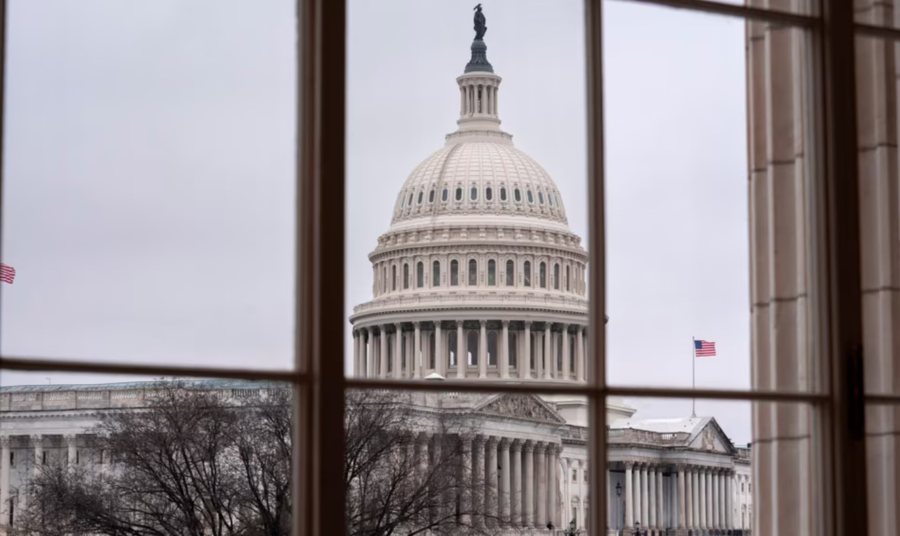
US lawmakers are one step closer to approving the budget before March 14, the deadline when the current budget expires, but Congress still appears to have serious problems to solve.
The debates are related to whether or not to extend the tax cut law passed in 2017, which expires this year, as well as reducing government spending without affecting vital programs for Americans.
President Donald Trump has called on lawmakers to pass a single budget bill that would contain the main elements of his domestic policy.
Despite President Trump expressing his preference for the House version of the budget, the Senate passed its own version on Friday, providing $150 billion in funding for the military and $175 billion for border security. The Senate version avoids controversial cuts to the Medicaid health insurance program for low-income families that are included in the House version.
Senate leaders have proposed that the tax cuts be passed in a separate bill later this year.
"Republicans have made progress to secure funding for ongoing efforts to deport immigrants who have committed criminal offenses, to provide needed resources for border security, as well as to discourage illegal immigration and restore respect for the rule of law," Senate Majority Leader John Thune said Monday.
But Senate Minority Leader Chuck Schumer said that approving this option was only the first step to helping the country's wealthy by cutting their taxes.
"What are Republicans doing? They are spending precious time trying to satisfy the desires of America's absolute wealthiest people, instead of working to avoid a catastrophic impact on services that help tens of millions of middle-class American families," he said on Monday.
The Senate approved its version of the budget due to uncertainties over the success of the House of Representatives version.
The two versions will need to be merged into one to be signed into law.
The House of Representatives is expected to hold a vote on the procedure to be followed. Its speaker, Republican Mike Johnson, has a slim majority and does not have the luxury of losing any votes to pass his version of the budget.
Rep. Tony Gonzales leads a group of seven House Republicans who oppose potential cuts to health care programs like Medicaid, food assistance, and other key welfare programs.
"Impeding the Medicaid program would have serious consequences, especially for rural and predominantly Hispanic communities, where hospitals and nursing homes are already struggling and at risk of closure," said a letter from lawmakers sent to Mayor Johnson last week.
Dissatisfaction with the House version of the budget has also been expressed by Republican lawmaker Thomas Massie, a member of the Freedom Caucus, a group of Republicans with more conservative beliefs, as well as several other undecided Republicans, who have not yet made their position on the bill known.
Congressional Democrats also oppose the Republican tax cut proposal, arguing that it will hurt lower-income and middle-class Americans, who already have concerns about the cost of living and inflation.
In a letter sent Monday morning, Democratic leader Hakeem Jeffries wrote: "The far-right extremists are determined to pass a $4.5 trillion tax cut for wealthy Republican donors and corporations with strong political connections, inflate the debt, and burden Americans with daily bills by ending Medicaid. We must stop the Republican tax scam immediately."
In a post on his social media account 'Truth Social', President Trump wrote last week that "The House and Senate are doing a tremendous job of working together as a unified and unbeatable team, however, unlike (Republican Senator) Lindsey Graham's version, the House version implements my 'America First' policy in its entirety, not just parts of it," he said.
If lawmakers fail to reach a compromise by March 14, it will lead to a partial shutdown of government agencies, temporarily leaving millions of federal employees without pay. Some non-essential government services would also be suspended. /VOA (A2 Televizion)











